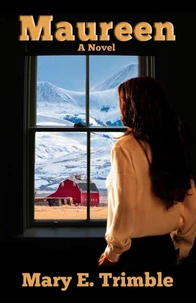Mortars explode close to the house where 118 of us seek refuge. Crouching under a table with my boss, I wonder about returning to our village, our jobs, and to $2, 500 buried in our chicken coop. My husband Bruce shields forbidden communication radios with his body. Our eyes lock, silently asking, "Whose idea was this, anyway?"I can't remember a time when I didn't dream of going to Africa. A door opens through the Peace Corps.
Bruce, my husband of just one year, and I respond to positions in The Gambia; Bruce as an advisor for a well-digging project and I as a records keeper in a bush health center. After training, we begin our lives as tubobs, the West African term for white people. Our home, 250 miles from the capital city of Banjul, consists of a round mud-brick hut with a cone-shaped thatched roof that we use for a bedroom, and a small oblong mud-brick structure where we cook and eat.
We have no running water; our toilet is a hole in the ground. My work at the small health center takes effort to get past the unsanitary conditions, the smells, and lack of supplies, but gradually we make progress. Bruce meets with frustration at work and frequently finds himself probing the men out of slumber and toward production. Still, life-saving wells are built. Living in The Gambia is an incongruous existence with the blend of ancient and modern.
Humor is abundant, but so is misery. We're impressed with how the people manage. Near the end of our two-year term, we're caught up in an attempted military takeover of the government. During the coup, we seek refuge in the American ambassador's residence along with 116 other expatriates. After eight tense days, we are evacuated to Dakar, Senegal and two weeks later, return to our village where we say a difficult farewell to our African friends.
Mortars explode close to the house where 118 of us seek refuge. Crouching under a table with my boss, I wonder about returning to our village, our jobs, and to $2, 500 buried in our chicken coop. My husband Bruce shields forbidden communication radios with his body. Our eyes lock, silently asking, "Whose idea was this, anyway?"I can't remember a time when I didn't dream of going to Africa. A door opens through the Peace Corps.
Bruce, my husband of just one year, and I respond to positions in The Gambia; Bruce as an advisor for a well-digging project and I as a records keeper in a bush health center. After training, we begin our lives as tubobs, the West African term for white people. Our home, 250 miles from the capital city of Banjul, consists of a round mud-brick hut with a cone-shaped thatched roof that we use for a bedroom, and a small oblong mud-brick structure where we cook and eat.
We have no running water; our toilet is a hole in the ground. My work at the small health center takes effort to get past the unsanitary conditions, the smells, and lack of supplies, but gradually we make progress. Bruce meets with frustration at work and frequently finds himself probing the men out of slumber and toward production. Still, life-saving wells are built. Living in The Gambia is an incongruous existence with the blend of ancient and modern.
Humor is abundant, but so is misery. We're impressed with how the people manage. Near the end of our two-year term, we're caught up in an attempted military takeover of the government. During the coup, we seek refuge in the American ambassador's residence along with 116 other expatriates. After eight tense days, we are evacuated to Dakar, Senegal and two weeks later, return to our village where we say a difficult farewell to our African friends.

 , qui est-ce ?
, qui est-ce ?